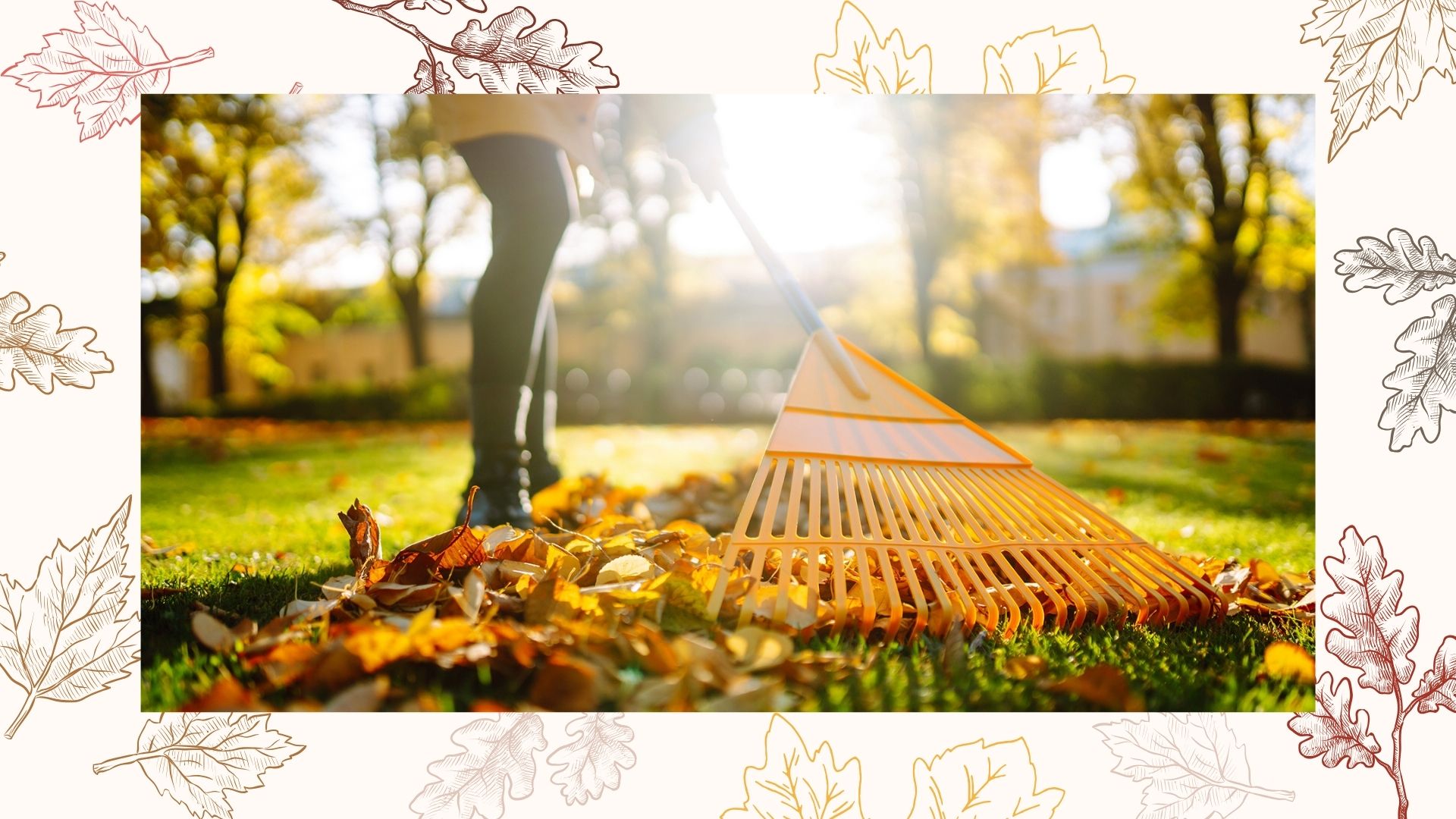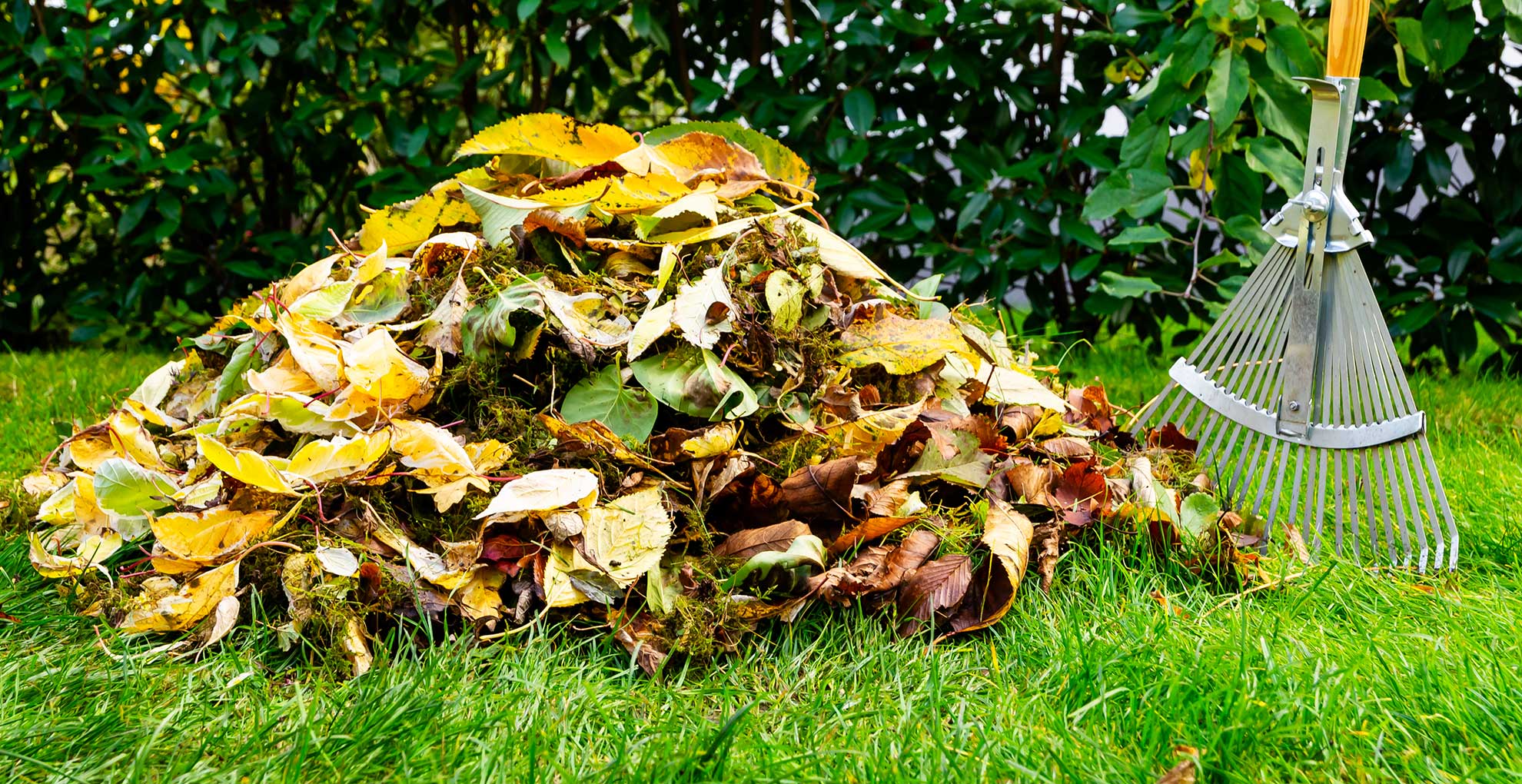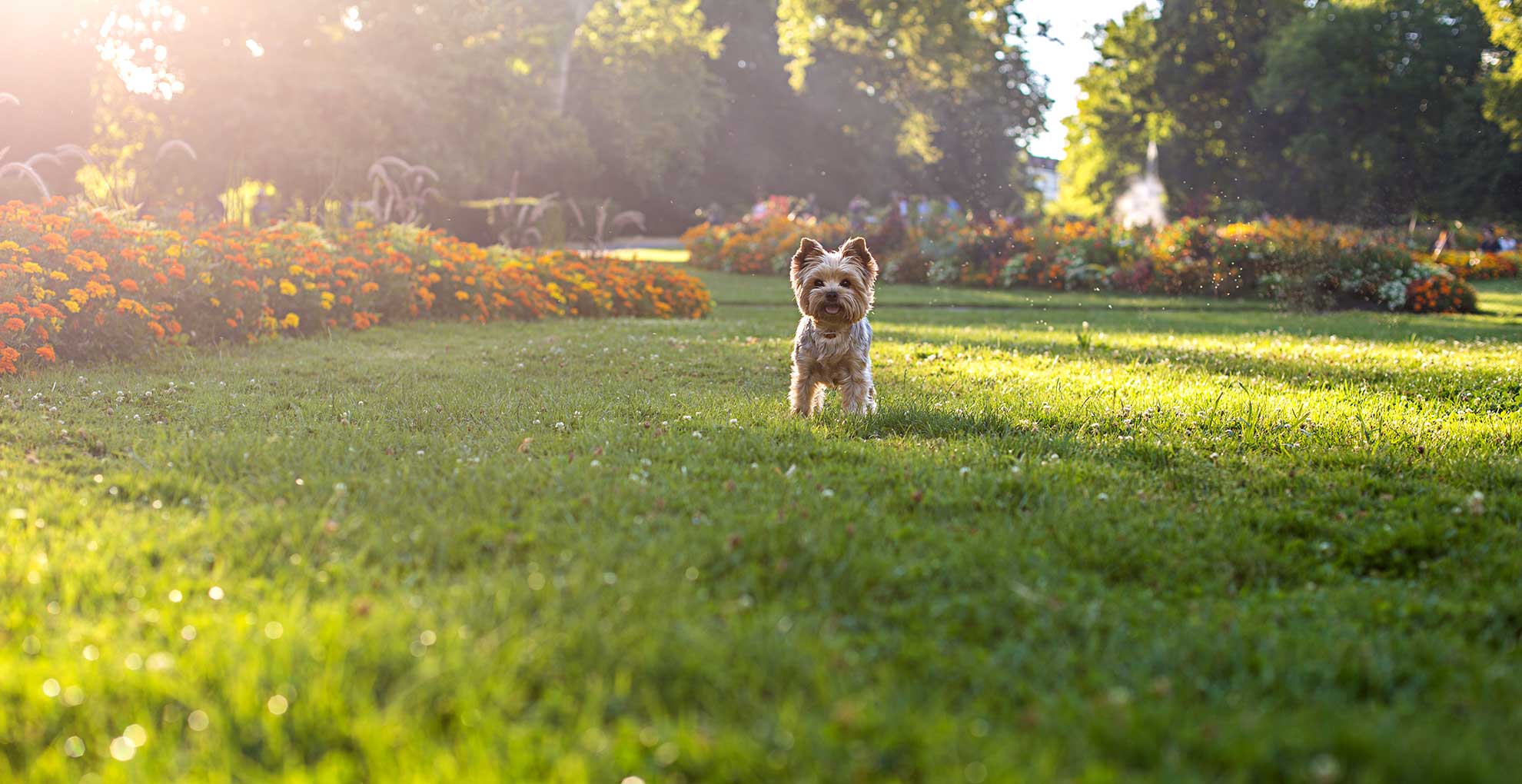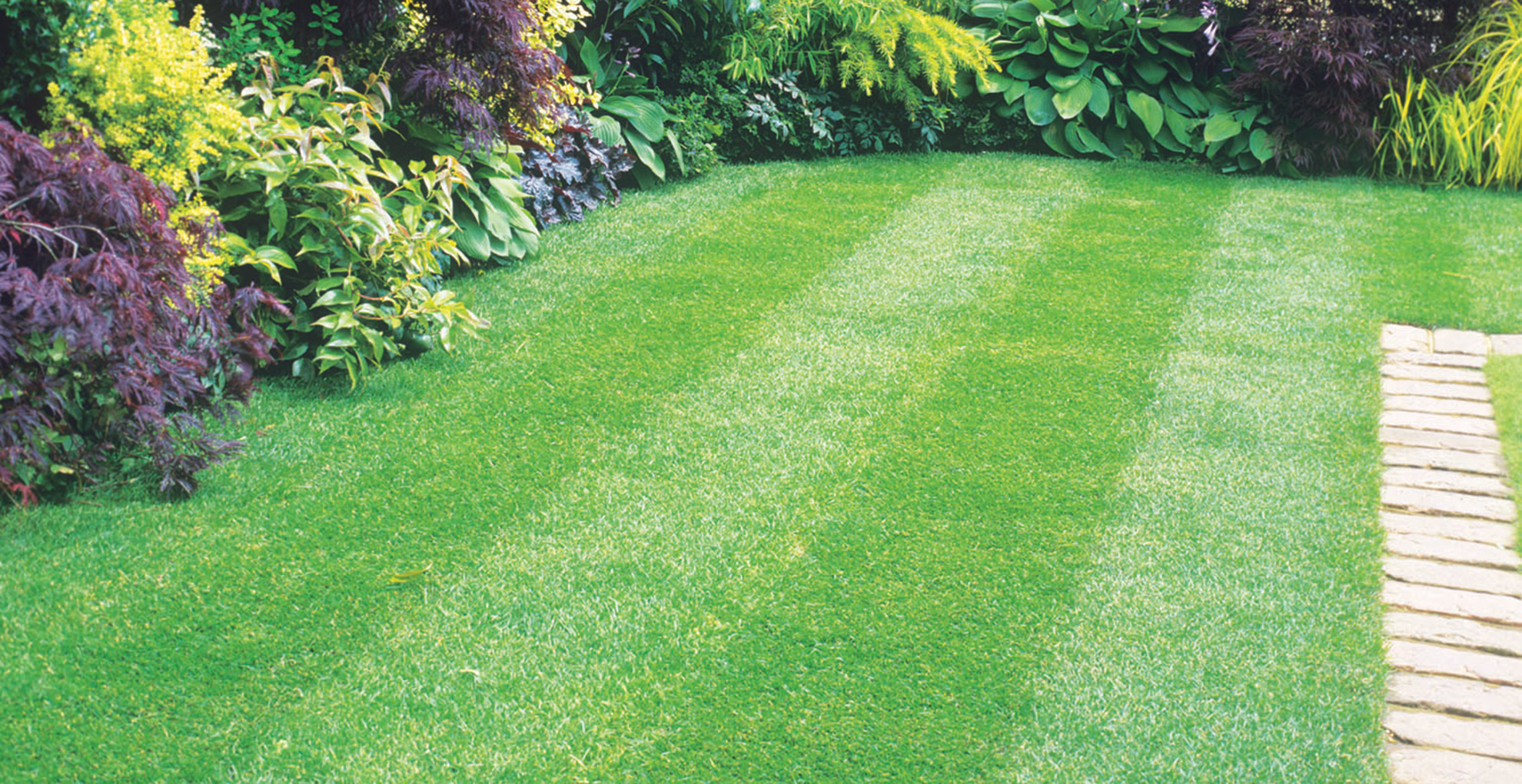6 winter lawn care tips experts swear by to get Wimbledon-worthy grass next spring
Prepare your garden for winter by following these expert-approved seasonal lawn care tips


Dedicated winter lawn care practises are essential for better results come next spring, by ensuring your grass is protected and prepared to cope with the harsh weather conditions during the colder months.
From how often to mow the lawn to knowing when to leave grass cuttings on the lawn, it's all about timing and peak temperatures when it comes to getting it right as we transition from autumn into winter. Right now temperatures are unseasonably high so when you stop cutting the grass for the year will be later but with downpours, it's all about timing it perfectly.
Similar to how summer lawn care caters to the heat, winter garden jobs are all about protection from the harsher climates of winter frosts and downpours.
Preparing the grass for the dormant winter months ahead is essential for not only securing a flying start for your spring lawn but also for helping to ensure that your lawn stays healthy all winter long.
6 Essential Winter Lawn Care Tips
Here are the essential winter lawn care tips from our experts, to ensure healthier grass for next year.
1. Clear fallen leaves and debris

Start by raking your lawn to remove fallen autumn leaves to prevent them from damaging the grass below.
"It may seem obvious, but clearing leaves and debris off your lawn regularly will help its condition when spring rolls around," says Chris McIlroy, a lawn care expert at The Grass People. "Leaves left on your lawn create an extra layer of moisture that can encourage fungal diseases to form."
Sign up for the woman&home newsletter
Sign up to our free daily email for the latest royal and entertainment news, interesting opinion, expert advice on styling and beauty trends, and no-nonsense guides to the health and wellness questions you want answered.
"During winter, most trees (and favoured garden plants) will have completed most of their autumnal shredding, so carrying out a final tidy-up will help your lawn breathe a sigh of relief." This is also a great way to prevent weeds from taking root.
2. Scarify and aerate
Ahead of giving your lawn its last mow of the year, it is a good idea to tend to maintenance tasks that can offer better protection during the winter months.
“Autumn is the best time of year to scarify your lawn (provided it's not wet) to remove any old clippings and moss from the surface," says Matt Kent, landscaping category manager at Toolstation. "You should also aerate the lawn by essentially using a garden fork to poke holes into the soil - this helps to deal with any potential wet weather."
"In terms of aerating, we would advise you to approach with caution and take into consideration the temperatures at the time of aerating," adds Chris. "Don’t aerate when it is too wet, or too frosty as the effects may be less impactful."
"If you have clay soils at home, aerating at the end of the season is good practice as it will help to alleviate the pressures of any rainfall in the coming season, and hopefully reduce the chances of waterlogging your lawn."
3. Leave grass longer

For winter you need to be extra mindful of how low you cut grass, as well as how often you mow. "For your final mow, we recommend adjusting the height of your mower to higher than you usually would," suggests Chris. "The aim of autumn/winter mowing is to top the grass and to never cut too short in the winter.'
"Cutting grass too low makes it vulnerable to frost, disease, and further damage it will struggle to recover from," Chris warns.
"Be sure to set your mower to no less than 2 inches as grass typically stops growing during the winter months," advises Matt.
Chris is the technical product lead and inhouse lawn seed expert for The Grass People, a grass seed company that champion their expert lead advice and high-quality seed. His advice is focused on sowing, mowing, and maintaining a perfect lawn, and how to overcome any lawn issues homeowners face.
4. Feed your lawn for one last time
Think of it as preparing to hibernate. Giving your lawn one last feed ensures it has all the right nutrients to help it stay healthy and strong during winter when lawns become far more vulnerable to the effects of frost, snow and disease.
"Feeding your lawn for winter with the right fertiliser at the right time of year will provide it with all the nutrients it needs to get through the colder months and emerge healthy in spring."
"If you’re worried that your lawn might be already showing signs of being sick, you may wish to consider applying a quick-release fertiliser, I recommend the Quick Release Autumn/Winter Fertiliser, £62.40 for 20kg, at The Grass People. These are normally high in phosphate and potassium that team up to strengthen the root system and harden your grass so it can build immunity against disease."
"As it is a quick-release fertiliser, it will quickly protect your lawn when it needs it most. We would strongly recommend using slow-release fertilisers, I recommend the Slow Release Autumn/Winter Fertiliser, £40.25 for 10kg, at The Grass People, if your lawn allows for it, this will replicate the same results over a longer period of time."
5. Tidy and take the weight off

Provide your lawn with the best chance of survival by allowing it to recover from the stress of summer. An important step for this is to remove your wooden garden furniture, post-summer cleaned BBQ and any garden accessories to take the weight off.
"Moving unused furniture or objects in your garden – e.g. swing sets, trampolines etc. can give your grass a much-needed opportunity to recover," Chris agrees.
6. Sow grass seed
The optimum temperature for sowing grass seed is between 8-10 degrees and above, which is why autumn is the best time to do it before winter.
"In many places, throughout the UK we are still reaching these temperatures until mid-October," says Chris. "Sowing in autumn means less work for you in spring, so you can kick back, relax and enjoy all that the coming summer has to offer."

Tamara is a highly experienced homes and interiors journalist with a career spanning over 22 years. Now the Lifestyle Editor of womanandhome.com, she previously spent 18 years working with the style teams at Country Homes & Interiors and Ideal Home. With these award-winning interior teams, she gained a wealth of knowledge and honed her skills and passion for styling and writing about every aspect of lifestyle and interiors.
A true homes and interiors expert, Tamara has been an ambassador for leading interior brands on multiple occasions, including appearing on Matalan’s The Show and presenting at top interior trend forecasting events such as the Autumn Fair and Spring Fair.
-
 Need spring style inspiration? Jennifer Aniston proves a shirt dress is the most versatile item you can invest in
Need spring style inspiration? Jennifer Aniston proves a shirt dress is the most versatile item you can invest inIf you only buy one piece this weekend, make it a shirt dress
By Matilda Stanley Published
-
 Celebrities you never knew got their start as models, from Angelina Jolie's 'terrible' experience to A-listers who started as pageant queens
Celebrities you never knew got their start as models, from Angelina Jolie's 'terrible' experience to A-listers who started as pageant queensWhether it was just for a short time or it's how they got discovered for something else, these stars owe it all to striking a pose
By Jack Slater Published